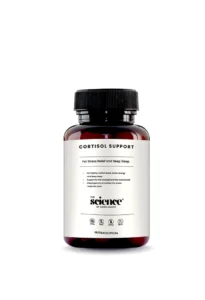Do you often feel mentally drained, unable to focus, or like your brain is working in slow motion? These moments of mental cloudiness are often described as brain fog. The reassuring fact is that brain fog itself is not a disease, but it is a symptom that your body is trying to tell you something is out of balance. Identifying the true brain fog causes is the first and most important step to regaining mental sharpness, improving focus, and restoring energy.
Brain fog can feel like your mind is buffering, much like a computer that slows down when too many programs are running at once. Instead of reaching for quick fixes like extra caffeine, it is better to uncover the underlying reasons. In this article, we will explore what brain fog really means, the most common brain fog causes, the symptoms you should not ignore, and natural solutions that bring clarity back to your daily life.
What is Brain Fog?
Brain fog is not an official medical condition, but it is a very real experience. It is best described as a state of mental fatigue where thinking feels slow, memory slips become frequent, and focus seems almost impossible. People experiencing brain fog often say they feel detached, as if their head is wrapped in cotton.
The key to understanding brain fog is to realize that it is only a sign of deeper health issues. Instead of treating it as a stand-alone problem, we need to ask: what are the brain fog causes behind this mental state? When we identify the true root, we can move toward sustainable healing instead of temporary relief.
Common Brain Fog Causes
Brain fog can result from a wide range of factors. Some are related to daily lifestyle choices, while others stem from biological conditions or environmental influences.
Lifestyle-Related Brain Fog Causes
Sleep deprivation is one of the most common brain fog causes. Without consistent, deep sleep, the brain cannot repair itself, clear out toxins, or strengthen memory. Over time, poor sleep leads to forgetfulness, slower thinking, and lower energy.
Nutrition also plays a major role. Diets high in sugar, processed foods, and refined carbs contribute to blood sugar spikes and crashes, which leave the brain feeling sluggish. A lack of essential vitamins and minerals, especially B12, magnesium, and omega-3 fatty acids, can further worsen brain fog.
Chronic stress is another overlooked cause. Constant exposure to stress hormones like cortisol impairs memory, reduces focus, and leaves the nervous system in a state of fatigue. Even mild but long-term stress can become one of the hidden brain fog causes.
Dehydration is simple yet powerful. Even mild dehydration reduces blood flow to the brain, lowering concentration and reaction time. Many people misinterpret this as tiredness when the body is simply lacking enough water.
Medical and Biological Brain Fog Causes
Hormonal imbalances are significant contributors. Women going through menopause or pregnancy often report brain fog as hormones fluctuate. Thyroid disorders, both underactive and overactive, also directly affect brain clarity.
Blood sugar fluctuations are another common trigger. People with diabetes, prediabetes, or insulin resistance frequently experience episodes of mental cloudiness. When the brain does not receive a steady supply of glucose, it struggles to function optimally.
Autoimmune conditions such as lupus, multiple sclerosis, and fibromyalgia are often associated with persistent brain fog. These conditions involve chronic inflammation, which disrupts nerve signaling and drains mental energy.
Neurodivergent conditions like ADHD and autism may also present with brain fog symptoms. While the underlying mechanisms differ, difficulties with focus, working memory, and sustained attention overlap with the brain fog experience.
Environmental and External Brain Fog Causes
Certain medications list brain fog as a side effect. Chemotherapy drugs, antihistamines, and antidepressants are common examples. While necessary for treatment, they sometimes affect brain chemistry in ways that lead to mental fog.
Post-viral conditions, especially Long COVID, have brought more attention to brain fog in recent years. Many people recovering from infections report ongoing difficulties with memory and concentration, which shows how inflammation and immune response can impact the brain.
Finally, gut health is strongly connected to mental clarity. An unhealthy gut microbiome or conditions like leaky gut can produce inflammation that travels to the brain. This gut-brain connection is increasingly recognized as one of the most important yet overlooked brain fog causes.
Symptoms of Brain Fog You Should Not Ignore
While everyone occasionally feels foggy after poor sleep or stress, persistent brain fog may signal deeper health concerns. Here are the symptoms you should pay close attention to:
- Frequent memory lapses, such as forgetting appointments or conversations
- Inability to focus for extended periods, even on simple tasks
- Feeling mentally exhausted even after sleeping
- Slow reaction times or needing longer to process information
- Struggling to find the right words mid-sentence
- Lack of motivation or reduced mental sharpness throughout the day
If these symptoms appear often, it is important not to dismiss them. They may be pointing toward underlying brain fog causes that need investigation.
Diagnosing Brain Fog – Finding the Root Cause
The path to recovery always starts with identifying the root cause. Doctors and functional medicine practitioners often use three key steps:
- Reviewing medical history and tracking symptoms to find possible patterns such as poor sleep, high stress, or diet issues
- Ordering lab tests to measure vitamin deficiencies, thyroid function, blood sugar balance, and gut microbiome health
- Evaluating lifestyle and biology together using a functional medicine approach to see how daily choices interact with underlying health conditions
By looking beyond the surface, these steps help uncover the true brain fog causes instead of just masking the symptoms.
How to Get Rid of Brain Fog Naturally
Restoring mental clarity requires addressing both lifestyle and biology. Here are practical solutions that help eliminate brain fog and bring focus back.
Lifestyle Changes
- Prioritize seven to nine hours of quality sleep each night. Maintain a regular sleep schedule by going to bed and waking up at the same time daily.
- Reduce stress through yoga, meditation, breathwork, or mindfulness. Even ten minutes of daily relaxation can reset the nervous system.
- Stay hydrated by drinking two to three liters of water daily. Herbal teas and fresh fruits add to hydration as well.
- Limit alcohol, refined sugar, and processed foods, which burden both the liver and brain.
Nutrition and Gut Health
- Eat more anti-inflammatory foods such as fatty fish, walnuts, berries, green vegetables, and turmeric. These support brain health and reduce oxidative stress.
- Identify food intolerances by keeping a food journal and removing possible triggers such as gluten, dairy, or soy.
- Consider targeted supplements such as Vitamin B12, Vitamin D, Omega-3 fatty acids, and Magnesium, all of which support brain function.
- Support gut health with probiotic-rich foods like yogurt, kefir, kimchi, or sauerkraut. Adding high-fiber foods nourishes healthy gut bacteria.
Medical and Professional Support
- Work with a functional nutritionist who can uncover hidden factors such as nutrient deficiencies or gut imbalances.
- Seek therapy if brain fog is linked to depression, anxiety, or unresolved stress. Cognitive-behavioral therapy and other approaches can make a difference.
- Take medication only when necessary for underlying medical conditions, guided by a healthcare provider.
By combining these approaches, you address not only the symptoms but also the deeper brain fog causes.
Conclusion
Brain fog should not be ignored or normalized. It is a sign from your body that something deeper needs attention. By identifying the specific brain fog causes affecting you, whether it is poor sleep, nutritional deficiencies, gut imbalances, or hormonal shifts, you can take targeted steps to restore sharp thinking, memory, and focus.
If brain fog, fatigue, or hormonal imbalances are disrupting your daily life, it is time to look deeper into the root causes. Work 1:1 with Smriti Kochar, India’s #1 Gut Health Coach, and learn how food as medicine can transform your mental clarity, energy, and overall health.
Consult Smriti Today
Extra Support for Mental Clarity
In addition to lifestyle and nutrition, some people benefit from carefully designed supplements. One such option is Sharp Brain and Focus. This natural blend is formulated to support focus, memory, and cognitive energy. While not a substitute for addressing deeper brain fog causes, it can complement your journey toward better brain health.
Read Our Latest Blogs
Stomach Pain but No Period | Why Do I Have Lower Cramps but No Period | 10 Days Late for Period, No Symptoms | No Period after Abortion, Negative Pregnancy Test | How to Get Rid of Brain Fog | How to Cure Brain Fog | How to Clear Brain Fog | Supplements for Brain Fog | How to Deal with Brain Fog
Frequently Asked Questions
Ans: Foods high in sugar, refined carbohydrates, processed snacks, and alcohol are among the strongest dietary brain fog causes. Food intolerances such as gluten or dairy can also play a major role.
Ans: Yes. By correcting the root brain fog causes such as hormonal imbalances, poor sleep, or gut issues, many people regain full clarity and energy.
Ans: It depends on the cause. Short-term brain fog from poor sleep may last a day, while brain fog related to autoimmune or hormonal conditions may persist until the root cause is treated.
Ans: Not always, but gut health is one of the most common brain fog causes. An unhealthy gut produces inflammation that can directly affect brain function.
Ans: Yes. Even mild dehydration reduces blood circulation to the brain and affects neurotransmitter function, leading to foggy thinking.
Ans: Yes. Both underactive and overactive thyroid function can lead to brain fog. It is one of the early signs of thyroid imbalance.
Ans: ADHD is a neurodevelopmental condition that affects attention and impulse control, while brain fog is a symptom triggered by lifestyle, medical, or environmental brain fog causes.
Ans: Supplements such as Vitamin B12, Omega-3 fatty acids, Vitamin D, and Magnesium often help. Herbal blends for focus may also support clarity when combined with healthy habits.





